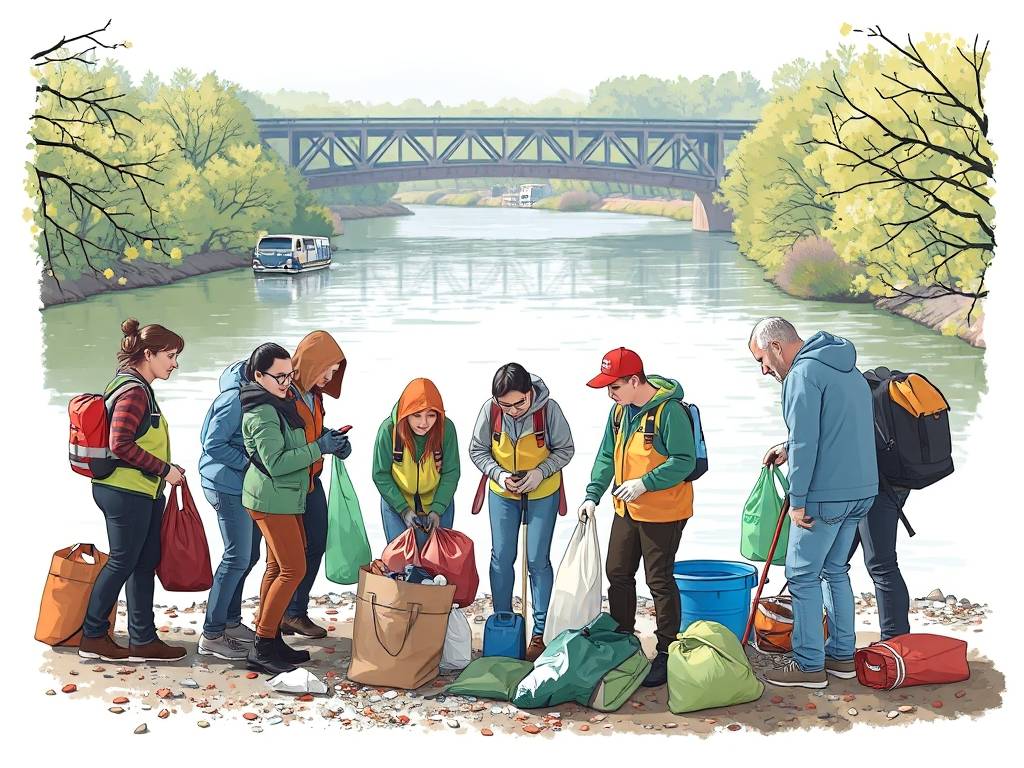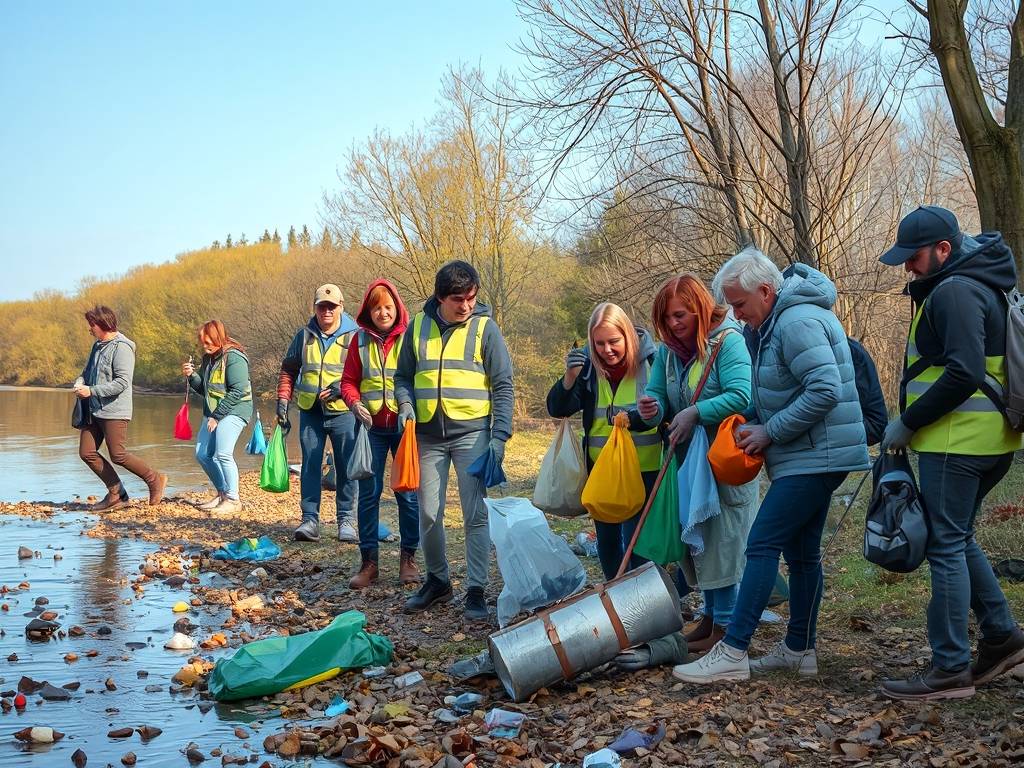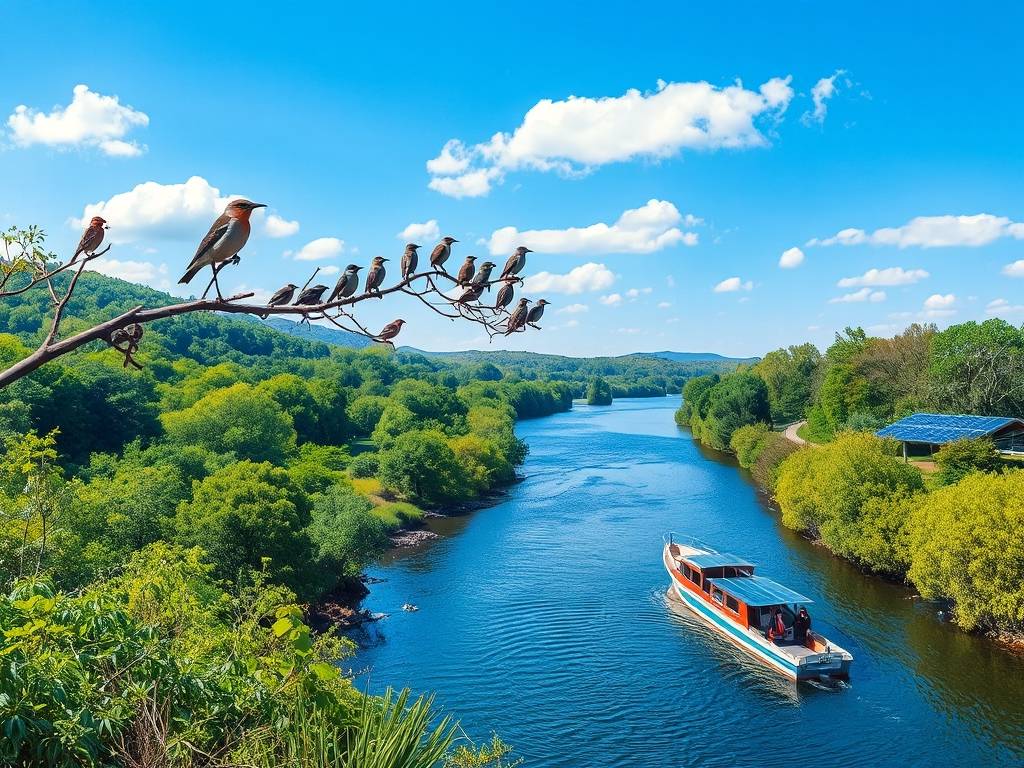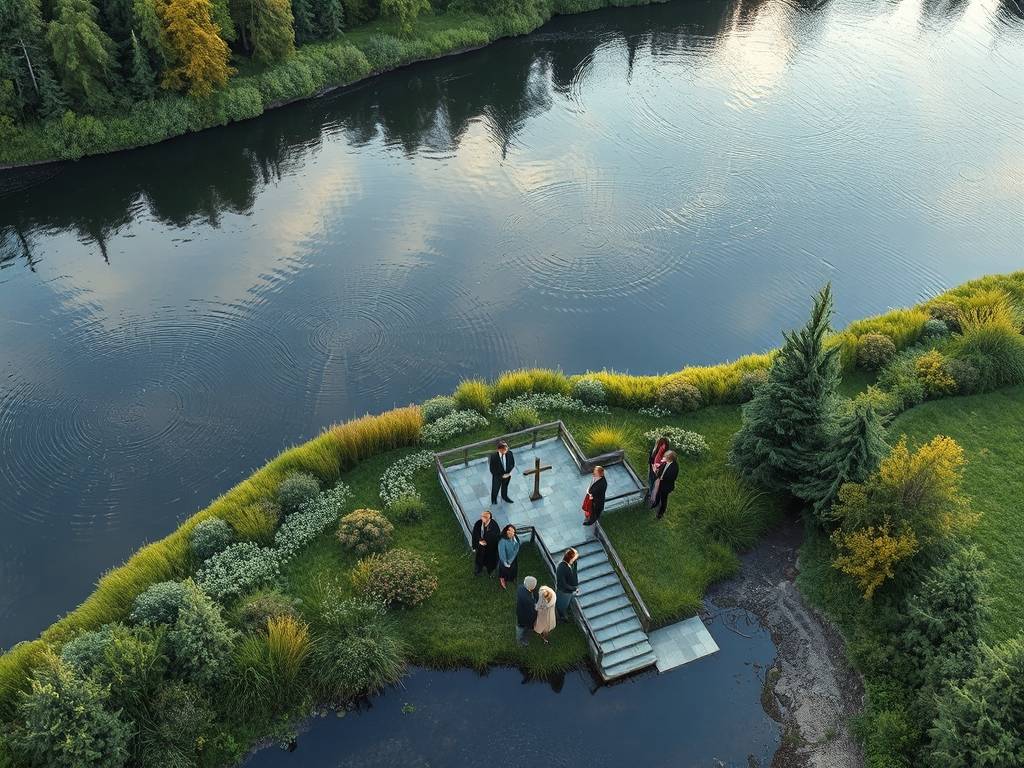Global Travel Information
Elbe River Volunteer Opportunities: Help Protect the Waterway
The Elbe River: Your Guide to Meaningful Volunteer Opportunities for a Healthier Waterway
The Elbe River, a shimmering ribbon of life winding through the heart of Europe, is more than just a scenic backdrop. It's a vital artery, a source of drinking water, a habitat for countless species, and a cherished recreational space for millions. But like many major waterways, it faces constant pressures from pollution, habitat loss, and human activity. The good news? You don't need to be a scientist or a politician to make a real difference. A powerful wave of community-driven conservation is growing, and it's fueled by volunteers just like you. This is your invitation to join the movement and discover the deeply rewarding world of Elbe River volunteer opportunities.

The health of the Elbe is a story of remarkable recovery and ongoing challenges. Decades of industrial pollution once left it ecologically struggling, but concerted efforts have brought it back from the brink. Today, the threat is more diffuse: plastic waste carried by currents, chemical runoff from agriculture, the disruption of natural banks, and the invasive species that can crowd out native flora and fauna. Protecting this progress and securing the river's future requires constant vigilance and care. This is where hands-on help becomes invaluable. By volunteering, you become a direct guardian of this precious ecosystem, contributing to water quality protection and the preservation of its unique biodiversity.

So, what can you actually do? The range of Elbe River conservation volunteer programs is wonderfully diverse, ensuring there's a role for every interest, ability, and schedule.
One of the most immediate and impactful ways to get involved is through riverbank and water clean-up events. Organizations such as the German Nature and Biodiversity Conservation Union (NABU), BUND (Friends of the Earth Germany), and local "Stadtteil" initiatives regularly organize community clean-up days. Picture a Saturday morning spent with a friendly group along the banks in Hamburg, Dresden, or Magdeburg, equipped with gloves and bags, plucking plastic bottles, packaging, and other debris from the vegetation. These efforts have a visible, instant impact. You leave the riverbank visibly cleaner and safer for both wildlife and people. For the more adventurous, some groups even organize clean-ups from kayaks or canoes, tackling hard-to-reach flotsam and jetsam. Participating in a local Elbe River clean-up day is a powerful statement and a tangible contribution to reducing plastic pollution.
If you have a passion for wildlife and a more scientific bent, consider volunteering for biodiversity monitoring and citizen science projects. This is where you can truly become the eyes and ears for scientists. Many conservation bodies rely on volunteers to collect crucial data. You might be trained to identify and count bird species along the river's wetlands, helping to track population trends of kingfishers, white-tailed eagles, or migratory geese. Other projects focus on documenting amphibian populations, surveying fish, or even tracking the spread of invasive plant species like the Himalayan Balsam. By contributing to these Elbe River wildlife protection volunteer projects, you are generating the essential data that informs conservation strategies and policy decisions. It’s a perfect blend of spending time in nature and contributing to its long-term understanding.
For those who love to get their hands dirty in a more literal sense, habitat restoration volunteer work offers a deeply satisfying experience. The Elbe's ecosystem depends on its natural floodplains, wetlands, and forests. Volunteer tasks here can include planting native trees and shrubs to stabilize banks and create wildlife corridors, building insect hotels to support pollinators, or helping to maintain these restored areas. These projects are about healing the landscape, piece by piece. You might spend a day in the "Auenlandschaft" (floodplain landscape) near Wittenberge, helping to recreate a natural habitat that supports beavers, otters, and a multitude of fish and insects. This type of hands-on habitat restoration for the Elbe is physically engaging and leaves a living legacy that will benefit the ecosystem for decades to come.
Perhaps your skills lie more in communication and community engagement. The success of river conservation depends on widespread public support. Volunteers are always needed to help at informational booths during local festivals, to lead guided nature walks for families, or to assist with educational programs for school children. Sharing your passion and knowledge about the river’s ecology can inspire others to care and act. You could be the person who explains to a child why it's important not to feed the swans bread or who informs a cyclist about the native fish species in the water beside them. This grassroots educational outreach for a cleaner Elbe is fundamental to building a lasting culture of environmental stewardship.
You might be wondering, "What's in it for me?" The benefits of volunteering for the Elbe River are as rich and flowing as the river itself.
- Tangible Impact: Unlike writing a check (which is also helpful!), volunteering allows you to see the direct results of your labor—a cleaner bank, a newly planted tree, a data sheet filled with your observations.
- Connection to Nature: It reconnects you with the natural world in a profound way. You'll learn to read the river's signs, identify its inhabitants, and develop a deeper appreciation for its complex beauty.
- Community and Camaraderie: You will meet like-minded people from all walks of life who share a common goal. The sense of community and shared purpose is incredibly uplifting and can lead to lasting friendships.
- Knowledge and Skills: You'll gain practical knowledge about ecology, conservation techniques, and local environmental issues. It's a fantastic learning experience for people of all ages.
- Personal Wellbeing: Spending time outdoors, engaging in physical activity (even if it's just a gentle walk during a bird count), and doing something meaningful for a greater good are all proven boosters for mental and physical health.
Getting started is easier than you might think. A great first step is to search online for terms like "Elbe River volunteer opportunities," "NABU Elbe," or "BUND Elbe," followed by your specific city or region. The websites of these major organizations have dedicated volunteer sections and event calendars. Don't overlook local community boards, environmental centers, or university sustainability offices. You can also simply reach out via email; these organizations are almost always eager to welcome new helpers and can guide you to the best fit for your interests.
The Elbe River has given us so much—sustenance, transport, inspiration, and solace. Volunteering is a way to give back, to ensure this majestic waterway remains vibrant and healthy for generations to come. Whether you can spare a single Saturday or commit to a long-term monitoring project, your contribution matters. You become part of a collective force, a guardian of the current, and a planter of seeds for the future. So, take that first step, find your niche, and experience the profound joy that comes from helping to protect one of Europe's most beautiful and vital rivers. The Elbe is calling. How will you answer?
相关文章
- Elbe River Conference Venues: Spaces with River Views
- Elbe River Wedding Venues: Tie the Knot by the Water
- Elbe River Funeral Services: Respectful Locations Along the Banks
- Elbe River Conservation Efforts: How to Support the Environment
- Elbe River Clean-Up Events: Join a Local Initiative
- Elbe River Educational Programs: Learn About Ecology
- Elbe River School Trips: Educational Excursions for Students
- Elbe River Science Tours: Explore the River’s Ecosystem
- Elbe River Weather Forecast: Plan Your Day Along the Water
- Elbe River Climate Information: Average Temperatures Year-Round
发表评论
评论列表
- 这篇文章还没有收到评论,赶紧来抢沙发吧~


